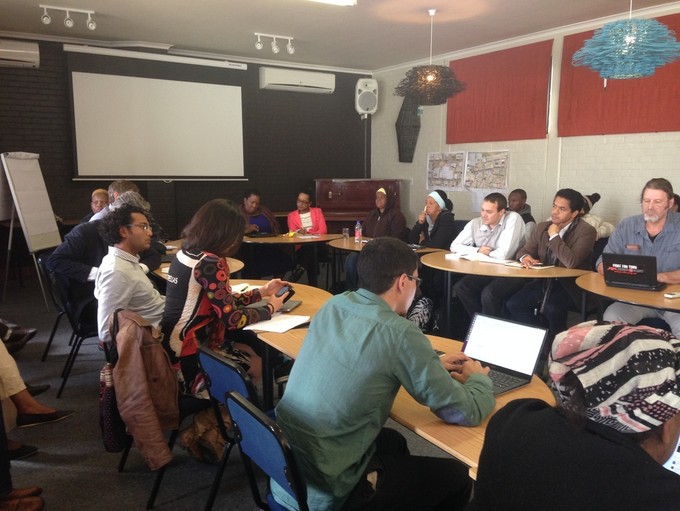Minds meet to increase access to communication
Meetings have taken place in Johannesburg and Cape Town. PE is next.
A forum on Thursday led by a University of the Western Cape post-doctorate fellow and the Right2Know (R2K) Campaign discussed solutions to access to communication in South Africa.
The group consisted of about 40 people from organisations including Research ICT Africa, Ellipsis Regulatory Solutions, the University of Cape Town and the Western Cape government, as well as township residents and R2K activists.
The forum was a conversation on how to move forward to increase access to Internet, Wi-Fi and other communication devices. It was also a way to gather organisations already working on this issue and allow them to identify common goals, said Carlos Rey-Moreno, the UWC fellow.
Rey-Moreno started talking with R2K in June 2015 after working for about four years toward sustainable methods of communication. In addition to the Cape Town forum, R2K hosted a similar event in Johannesburg at the beginning of May, also led by R2K members and Rey-Moreno.
Many organisations are working toward increased access to communication throughout South Africa, however they do not yet know how to bring together their research and areas of expertise, Rey-Moreno said. Another forum in the Cape Town area will be held sometime in the next three months, and a forum in Port Elizabeth is likely to be held soon as well, he said.
Coenraad Loubser, of The Wireless Access Providers’ Association, spoke of the importance of the groups present at the forum, which included governmental departments, big businesses, small businesses and communities. The forum attendants must understand how each group fits into the conversation, he said.
Throughout the forum, attendees focused on the importance of consumer involvement in these discussions, in addition to a bottom-up approach to the problem.
Other issues raised during the event involved the need for digital literacy among consumers. “In these access discussions, we need to be aware of the level of understanding of users that we’re all fighting for,” said Chenai Chair, of Research ICT Africa. An app explaining where hotspots are, for instance, might not benefit the most in-need consumers if they do not know how to access that app. Chair said there needs to not only be an increase in access, but an increase in awareness as well.
Noncedokheswa Ntanjana-Bulana, who lives in Khayelitsha and attended the forum, is one of the only residents her age in Site C who understands how WiFi works, she said.
The members of the forum must meet each other halfway, she said.
“Just listen to us, and then we might know how to get out of the circumstances that we are in.”
One of her primary concerns is privacy. She called the forum participants to think about ways residents can stay protected as access to both downloading and the Internet grows.
The forum ended after participants discussed ways to move forward. They acknowledged the need to focus regionally and potentially divide the larger group into smaller focus groups. A mailing list consisting of those present will be created to continue the conversation.
After the Johannesburg forum, a mailing list was also created for the participants there. However, no one has used it. Rey-Moreno implored members of the Cape Town forum to continue the conversation via the mailing list.
“It’s up to all of us to take this conversation forward,” Rey-Moreno said
Support independent journalism
Donate using Payfast

Don't miss out on the latest news
We respect your privacy, and promise we won't spam you.
Next: Mitchells Plain’s safe place for vulnerable children
Previous: Residents accuse ANC councillor of starting wasteful project
© 2016 GroundUp. 
This article is licensed under a Creative Commons Attribution-NoDerivatives 4.0 International License.
You may republish this article, so long as you credit the authors and GroundUp, and do not change the text. Please include a link back to the original article.

